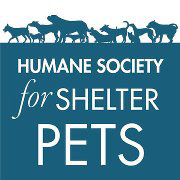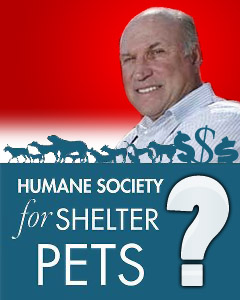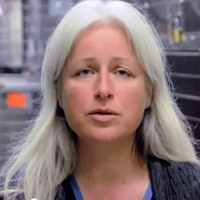 It appears there’s a new non-profit in town…
It appears there’s a new non-profit in town…
In a flurry of expensive ads in several major newspapers, the Humane Society for Shelter Pets has announced its arrival. However, seasoned animal advocates are justifiably wary of this seemingly warm and fuzzy charity.
It turns out that the Humane Society for Shelter Pets (“HSSP”) has no connection with any animal shelters. It doesn’t run a shelter, nor does it fund any shelters. Instead, its Mission Statement claims it is “dedicated to creating a sustainable base of local support for the nation’s network of local pet shelters through grassroots advocacy and outreach”.
While this may seem like a praise-worthy mission, a little poking around on the site shows that:
- The HSSP website is full of anti-HSUS rhetoric.
- It cites the Center for Consumer Freedom almost exclusively.
- It relies on three polls to support its claims: two were commissioned by HumaneWatch, and the third was actually written and conducted by HumaneWatch. (HumaneWatch refuses to reveal the wording and results of the polls.)
- It focuses almost entirely on the HSUS, ignoring other national groups.
- It provides no services to shelters whatsoever. Its sole purpose is to attack the HSUS.
If you’re familiar with the deceptive marketing and “educational” non-profit websites that are the hallmark of the Center for Consumer Freedom (parent and puppetmaster of HumaneWatch), you’re probably thinking you’ve seen this all before. You’d be right.
HSSP’s initial press release lists its address as “1090 Vermont Ave NW, Washington, DC 20008 United States”.
That address happens to be the street location for Richard Berman’s PR firm, Berman & Company. It’s also the street location for the Center for Consumer Freedom, the Center for Union Facts, the Employment Policies Institute Foundation, and the American Beverage Institute, among others – all Berman-run front groups.
To be fair, HSSP denies that Berman has anything to do with the daily operations of the organization. However, they do admit to “hiring” Berman & Company as their PR firm. Which leads us to another question…
Why would a supposed animal advocacy organization hire a PR firm with documented record of working vigorously on ANTI-animal causes?
It doesn’t make sense. And that’s not the only question that needs answering.
For example, where does a brand new “grassroots” non-profit get the money to launch a major advertising campaign, in its very first week of existence?
HSSP isn’t saying. Their supporters or partners aren’t listed on their web site. Nor is there a way to look at any of their documentation. Presumably one would have to file a FOIA request – just like with all of Berman’s shell operations.
Furthermore, we already know that Berman & Company does not work pro bono. They are strictly “pay-for-play”. Nor do their services come cheap.
So where does a brand new “grassroots” non-profit get the money to hire one of the most expensive PR firms in Washington, D.C., in its very first week of existence?
HSSP isn’t disclosing that, either.
On HSSP’s Facebook page, several people inquired about the confusing name of the group. Since they clearly do not support the Humane Society of the United States, and since they are not associated with any local humane societies, it seems strange that they would choose to name their organization after an entity they clearly despise.
Additionally, several posters noted the similarity of the rhetoric used on the web site and in the ads to that used by HumaneWatch, and inquired whether the organization was part of, or associated with, HumaneWatch.
None of these seem like unreasonable questions. Yet all of these posters were immediately banned and blocked from the FaceBook page. Again, this is a classic HumaneWatch response to questions, and the similarities are inescapable.
The refusal of HSSP to answer the most basic questions about their agenda and associations has already drawn the attention and suspicion of influential voices of the animal welfare community.
HSUS CEO Wayne Pacelle
didn’t mince words:
But now Rick Berman has outdone himself. Now, this Beltway con artist -– who has probably spent as much time as anyone in recent years fighting against animal welfare -– has formed a new supposed animal welfare charity. He’s calling it the “Humane Society for Shelter Pets.”
Neither did Karel Minor of the Humane Society of Berks County:
[The CCF] knows that by making big scary claims and using big numbers they can make people think, even animal people, that HSUS is the problem and keep HSUS on their heels. That is the real reason behind it. When they create sweet little pro-shelter animal websites, using testimonials by HSUS ex-employees (beware testimonials by ex-employees- what did you think of your last boss?), they aren’t doing it to help the animals, they are doing it to muddy the waters.
Pack Mentality author Tom Grady asked HSSP spokesman Jeff Douglas about the allegations. He dodged the question:
HSSP and the Center for Consumer Freedom are separate 501(c)(3) nonprofit organizations.
Berman and Company is the communications firm that was brought on by HSSP during its inception to manage its campaign due to their extensive work in this issue area. HSSP has an independent board and is managed by me — a long-time veterinary advocate — and former director of education for the Humane Society of the United States Diana Culp.
Obviously HSUS will try to paint HSSP as a group run by Rick Berman to avoid answering the real questions about their misleading fundraising practices. And while Rick Berman’s PR firm has helped bring HSSP to fruition, this group is a product of the efforts of a group of individuals with deep ties to the animal welfare community dedicated to improving the well-being of shelter animals across the country. Who we hired as our PR firm should be immaterial to the project.
Douglas’ last sentence is particularly interesting. No competent executive would ever think that the reputation and history of the PR firm you choose to represent your organization is “immaterial”.
You are known by the company you keep. When you claim to be on the side of animals, but hire the foremost defender of animal cruelty on the planet, your credibility vanishes like nonprofit donations into Richard Berman’s bank account.
On the other hand, stating that HSSP and CCF are separate organizations is immaterial. The dubious nonprofits run out of Berman and Company’s office are all separate organizations on paper, yet they employ the same staff, operate out of the same office, and funnel money into the pockets of the one seedy individual.
They may be separate organizations, but there’s little doubt about who’s really pulling the strings.
Tomorrow, we’ll examine who’s backing this deceptive group, and explore a comment by HSSP’s co-founder that reveals more than he intended.
 Bloomberg News has issued a report into the potentially criminal activities of Berman and Company, Inc. and its nonprofit front groups. The report highlights Berman’s legal troubles and questionable activities.
Berman, unsurprisingly, had no comment.
Read the full article at Bloomberg.com.
Bloomberg News has issued a report into the potentially criminal activities of Berman and Company, Inc. and its nonprofit front groups. The report highlights Berman’s legal troubles and questionable activities.
Berman, unsurprisingly, had no comment.
Read the full article at Bloomberg.com.  Bloomberg News has issued a report into the potentially criminal activities of Berman and Company, Inc. and its nonprofit front groups. The report highlights Berman’s legal troubles and questionable activities.
Berman, unsurprisingly, had no comment.
Read the full article at Bloomberg.com.
Bloomberg News has issued a report into the potentially criminal activities of Berman and Company, Inc. and its nonprofit front groups. The report highlights Berman’s legal troubles and questionable activities.
Berman, unsurprisingly, had no comment.
Read the full article at Bloomberg.com. 
 Yesterday we examined a new organization, the Humane Society for Shelter Pets. If you’re not familiar with their high-priced campaign of deception against the Humane Society of the United States, read our
Yesterday we examined a new organization, the Humane Society for Shelter Pets. If you’re not familiar with their high-priced campaign of deception against the Humane Society of the United States, read our  It appears there’s a new non-profit in town…
It appears there’s a new non-profit in town…
 As part of their smear campaign against animal welfare, HumaneWatch publishes a series of inept attempts at infographics called “The Visual HSUS”.
Their latest propaganda complains that the HSUS spends more on “lobbying” than it does on funding pet shelters. But HumaneWatch shoots itself in the foot by quoting the purpose of the HSUS from their Articles of Incorporation 56 years ago: “To protect all living things… from cruelty and neglect, with special emphasis on cruelties of national scope.”
National scope. That’s an important phrase.
The HSUS was never intended to fund local pet shelters; that’s simply not its purpose. The HSUS (along with other national groups like the ASPCA) confront issues that local groups don’t have the influence or resources to tackle. And these national efforts have been the greatest deterrent to animal cruelty the world has ever seen.
In addition to
As part of their smear campaign against animal welfare, HumaneWatch publishes a series of inept attempts at infographics called “The Visual HSUS”.
Their latest propaganda complains that the HSUS spends more on “lobbying” than it does on funding pet shelters. But HumaneWatch shoots itself in the foot by quoting the purpose of the HSUS from their Articles of Incorporation 56 years ago: “To protect all living things… from cruelty and neglect, with special emphasis on cruelties of national scope.”
National scope. That’s an important phrase.
The HSUS was never intended to fund local pet shelters; that’s simply not its purpose. The HSUS (along with other national groups like the ASPCA) confront issues that local groups don’t have the influence or resources to tackle. And these national efforts have been the greatest deterrent to animal cruelty the world has ever seen.
In addition to 